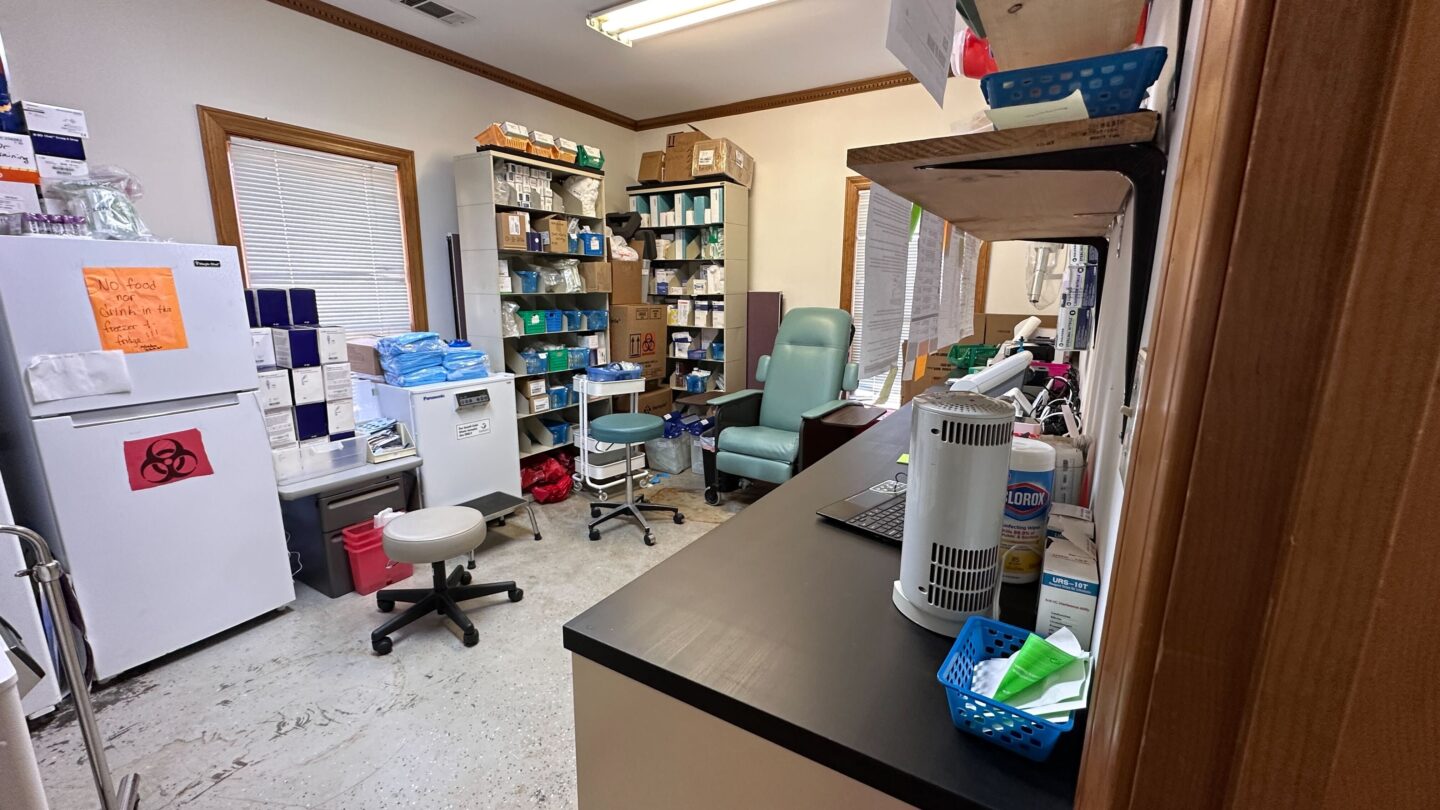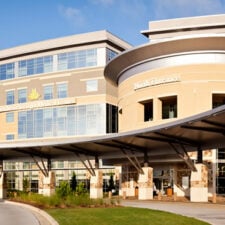The U.S. healthcare system can be difficult and frustrating to navigate, even for those who have spent their whole lives interacting with it, and sometimes prohibitively expensive even with medical insurance. With Georgia’s limited Medicaid expansion, regular preventative care is often inaccessible for those without jobs, leaving the emergency room as their only option.
Clarkston Community Health Center is working to close the gap between healthcare and those who can afford it, by offering free wraparound health services for anyone without insurance or making 200% below the poverty line.
Providing healthcare in Clarkston also requires a high level of cultural competence, because of the large number of refugee and immigrant families that have resettled in the community.
“There are people from 150 countries. And there are a total of more than 60 languages spoken here. Well, I speak six. So I’m still short 54,” said Dr. Gulshan Harjee, a cofounder of the Clarkston clinic.
Clinics like these have become more crucial than ever as more and more hospital emergency rooms are closing in metro Atlanta. CCHC hopes to soon expand their offerings to serve many more patients.
“We are a safety net for these emergency rooms, and so I’m sorry to see that since 2010 we’ve had nine hospitals shut. And you just heard about [the] Atlanta Medical [Center]. Well, where are their patients going to go now?” said Dr. Harjee.
The original impetus for the creation of CCHC came in 2015 when Dr. Saeed Raees, then a regional director with Walgreens, saw the impact Federally qualified health centers have using a similar model.
“I’ve been supporting this refugee community for last 12 years, in the community and financially,” said Raees. “But every time I came here to meet the leadership, they all knew I was a pharmacist, and they kept bringing up we need a clinic that understands us.”
Raees reached out to colleagues, including Dr. Harjee, as well as members of his interfaith group to provide much-needed healthcare to the growing refugee community in Clarkston and others in need. Longtime Atlanta Presbyterian pastor Dr. Ben Johnson donated the first $20,000 to get the center off the ground and served as a board member before he passed away.
Now the Clarkston Community Health Center has served more than 7,500 patients, offering everything from eyecare and mental health to primary care and women’s health.
This year the team behind the clinic hopes to double the number of patients served and has already purchased land where they plan to break ground on a larger, state-of-the-art facility.
To that end, CCHC hired Dr. Jeremy Cole a few months ago as its first executive director to lead a capital campaign to fund the expansion.
Cole is well-suited to the challenge, with more than two decades of experience as a leader in the non-profit sector working to create social good in and around Clarkston, including recently with Refugee Family Services in Clarkston and previously with UNICEF USA. He’s also served on the clinic’s board for the past three years and said he hopes to help the clinic create a model that can be replicated anywhere.
“So let’s look at new models that are community-based, that are driven by love in the community care and compassion and trust building,” said Cole. “People come here because it is their medical home… let’s build a model based on that.”
The effect their approach has on their patients is clear, with longtime clients raving about the care they’ve received and expressing a great appreciation for the level of compassion at CCHC.
“Especially when it’s a program where we don’t have the money, we’re not expecting to be treated the way we’re treated. And that surprises a lot of people, including myself,” said Sherene Linton, who’s been coming to the clinic for more than four years. “And it just makes you feel dignified, you feel respected. You feel like a person. And that helps a lot.”
While there are lots of volunteers, medical students and other practitioners that make everything at Clarkston Community Health Center possible, one person who touches most of the lives that come through their door is Gina Papa, the clinic’s administrator.
Papa started as a volunteer with CCHC while in nursing school – she now has a Doctor of Nursing Practice degree from Emory and runs the clinic’s day-to-day operations, in addition to teaching at Emory’s school of nursing.
Patients say she would call them every couple of weeks during the height of COVID to check on patients and their families, sometimes delivering food or medications, something Dr. Raees said she was not asked to do. Papa said she knew from her own experience how critical this care was for families struggling during the pandemic.
“I come from a small working-class community. My parents grew up in poverty. My grandparents immigrated here. And I knew if we couldn’t keep our community healthy to go back to work, we couldn’t find a means to stay open. Where would they go?” said Papa.
Papa was honored with the Atlanta Journal-Constitution’s Nurse Excellence Award last year.
The Clarkston Community Health Center is currently entirely donor-funded and operates on an annual budget of about $300,000, but they estimate the care they provide is worth ten times that much.
According to Cole, if they can roughly double their donations in 2023, the clinic will be able to open its doors twice the number of days as last year and serve twice as many patients. The only thing standing in the way is a lack of funding, as well as additional operational support, such as website designers and accountants.
When the clinic opens its new facility, they plan to implement a more sustainable business model by accepting patients with insurance to offset the cost of providing free healthcare to those unable to afford it but said they’ll strive to maintain the center’s focus on providing human-centered, welcoming, comprehensive and culturally sensitive healthcare.








